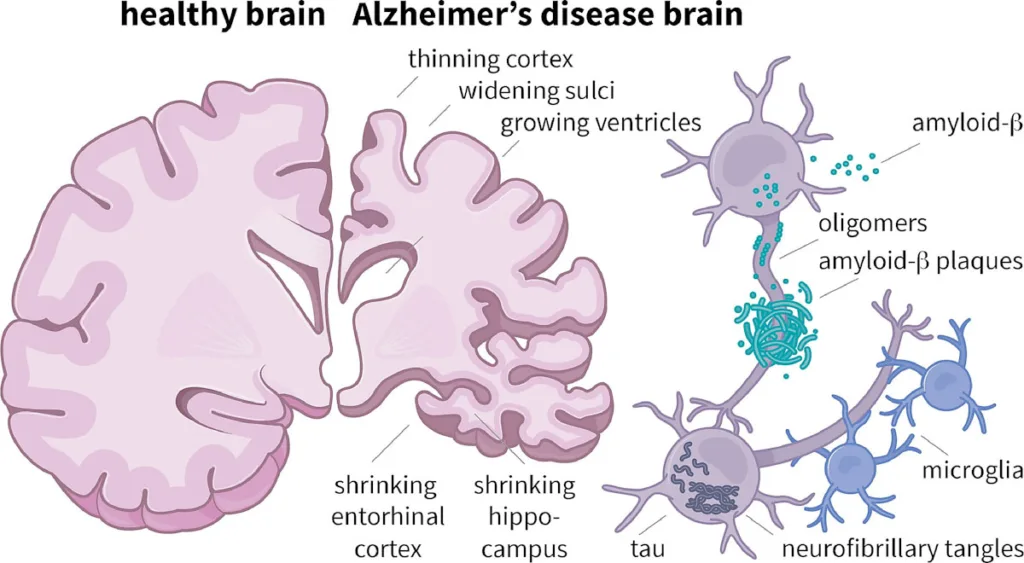Table of Contents
Introduction: Understanding Viagra as a Potential Treatment for Alzheimer’s
In recent years, there has been growing interest in the potential use of Viagra, also known as sildenafil citrate, as a treatment for Alzheimer’s disease. Alzheimer’s is a progressive neurological disorder characterized by cognitive decline and memory loss, with limited treatment options currently available. However, research suggests that Viagra may offer benefits beyond its well-known use for erectile dysfunction. In this article, we will explore the question: How often should you take Viagra for Alzheimer’s, and delve into the latest findings and recommendations regarding its usage for this purpose.
What is Alzheimer’s Disease?
A Progressive Neurological Disorder
Alzheimer’s disease is a progressive neurological disorder characterized by the gradual decline of cognitive function, memory loss, and changes in behavior and personality. It is a type of dementia, a broad category of brain diseases that impair memory, thinking, and social abilities to the extent that it interferes with daily life.
Neurodegeneration in the Brain
The hallmark feature of Alzheimer’s disease is the accumulation of abnormal protein deposits in the brain, known as amyloid plaques and tau tangles. These protein aggregates disrupt neuronal communication and lead to the death of brain cells, resulting in the progressive decline of cognitive function and memory.
Risk Factors and Causes of Alzheimer’s Disease

Age and Genetics
Advanced age is the most significant risk factor for Alzheimer’s disease, with the risk increasing exponentially after the age of 65. Additionally, genetics plays a role in the development of Alzheimer’s, with certain gene mutations, such as the APOE ε4 allele, increasing the likelihood of developing the disease.
Lifestyle Factors
While age and genetics play a significant role in Alzheimer’s disease, lifestyle factors also contribute to an individual’s risk. Poor cardiovascular health, obesity, diabetes, smoking, and lack of physical and mental activity have all been linked to an increased risk of developing Alzheimer’s disease.
Symptoms and Diagnosis of Alzheimer’s Disease
Early Warning Signs
The early stages of Alzheimer’s disease are often characterized by subtle changes in memory, thinking, and behavior. Common symptoms include forgetfulness, difficulty finding words, challenges in problem-solving, confusion, and changes in mood or personality.
Diagnostic Criteria
Diagnosing Alzheimer’s disease involves a comprehensive evaluation of a patient’s medical history, cognitive function, and neurological symptoms. Imaging tests such as MRI and PET scans can help identify brain changes associated with Alzheimer’s, while cognitive assessments and blood tests may also be used to rule out other potential causes of cognitive decline.
Treatment and Management of Alzheimer’s Disease
Current Treatment Options
While there is currently no cure for Alzheimer’s disease, several medications are available to help manage symptoms and slow the progression of the disease. These include cholinesterase inhibitors such as donepezil, rivastigmine, and galantamine, which work by increasing levels of acetylcholine, a neurotransmitter involved in memory and learning.
Non-Pharmacological Interventions
In addition to medication, non-pharmacological interventions such as cognitive rehabilitation, physical exercise, social engagement, and dietary modifications may also help improve quality of life for Alzheimer’s patients and their caregivers.
Research and Future Directions
Advancements in Alzheimer’s Research
The field of Alzheimer’s research is rapidly evolving, with ongoing efforts to better understand the underlying mechanisms of the disease and develop new treatment strategies. Emerging areas of research include immunotherapy, stem cell therapy, and precision medicine approaches tailored to individual patients’ genetic profiles.
Promising Therapeutic Targets
Recent studies have identified several promising therapeutic targets for Alzheimer’s disease, including the clearance of amyloid plaques and tau tangles, neuroinflammation, mitochondrial dysfunction, and synaptic loss. Clinical trials investigating novel drug candidates and therapeutic interventions are currently underway, offering hope for future breakthroughs in Alzheimer’s treatment.
Understanding Viagra as a Potential Treatment for Alzheimer’s

In recent years, there has been growing interest in the potential use of Viagra, also known as sildenafil citrate, as a treatment for Alzheimer’s disease. Alzheimer’s is a progressive neurological disorder characterized by cognitive decline and memory loss, with limited treatment options currently available. However, research suggests that Viagra may offer benefits beyond its well-known use for erectile dysfunction. In this article, we will explore the question: How often should you take Viagra for Alzheimer’s, and delve into the latest findings and recommendations regarding its usage for this purpose.
Viagra and Alzheimer’s: Exploring the Potential Benefits
Mechanisms of Action
Viagra works by increasing blood flow to specific areas of the body, primarily the genitals, to help treat erectile dysfunction. However, studies have shown that the drug may also have neuroprotective effects that could be beneficial for Alzheimer’s patients. Viagra’s ability to enhance blood flow to the brain and promote the release of certain neurotransmitters may help improve cognitive function and reduce the progression of Alzheimer’s symptoms.
Clinical Studies
While research into Viagra’s potential as an Alzheimer’s treatment is still in its early stages, several clinical studies have yielded promising results. For example, a study published in the Journal of Alzheimer’s Disease found that Viagra improved cognitive function and reduced inflammation in the brains of mice genetically predisposed to Alzheimer’s. Similarly, a small clinical trial involving human participants showed that Viagra treatment was associated with improvements in memory and cognitive performance.
Determining the Right Dosage: Considerations for Alzheimer’s Patients
Individualized Treatment Plans
When considering Viagra as a treatment for Alzheimer’s, it is essential to consult with a healthcare professional to determine the appropriate dosage and frequency of use. Every patient’s medical history, current health status, and medication regimen should be taken into account to develop an individualized treatment plan that maximizes potential benefits while minimizing risks and side effects.
Starting with a Low Dose
In general, Alzheimer’s patients may be more sensitive to medication side effects due to age-related changes in metabolism and organ function. Therefore, it is often recommended to start with a low dose of Viagra and gradually increase it as tolerated. This cautious approach allows healthcare providers to monitor for any adverse reactions and adjust the treatment regimen accordingly.
Regular Monitoring and Evaluation
As with any medication, regular monitoring and evaluation are crucial when using Viagra for Alzheimer’s treatment. Healthcare providers should closely monitor patients for changes in cognitive function, behavior, and overall health status to assess the effectiveness of the treatment and make any necessary adjustments.
Conclusion: Navigating the Complexities of Viagra Usage for Alzheimer’s
In conclusion, while Viagra shows promise as a potential treatment for Alzheimer’s disease, more research is needed to fully understand its efficacy and safety profile in this context. Patients and healthcare providers must work together to develop individualized treatment plans that take into account the unique needs and circumstances of each patient. By approaching Viagra usage for Alzheimer’s with caution and diligence, we can continue to explore its potential as a therapeutic option for this devastating neurological condition.
Please find additional resource here.
To know about Mental health, please read here.


1 thought on “How Often Should You Take Viagra for Alzheimer’s : Premier Report”